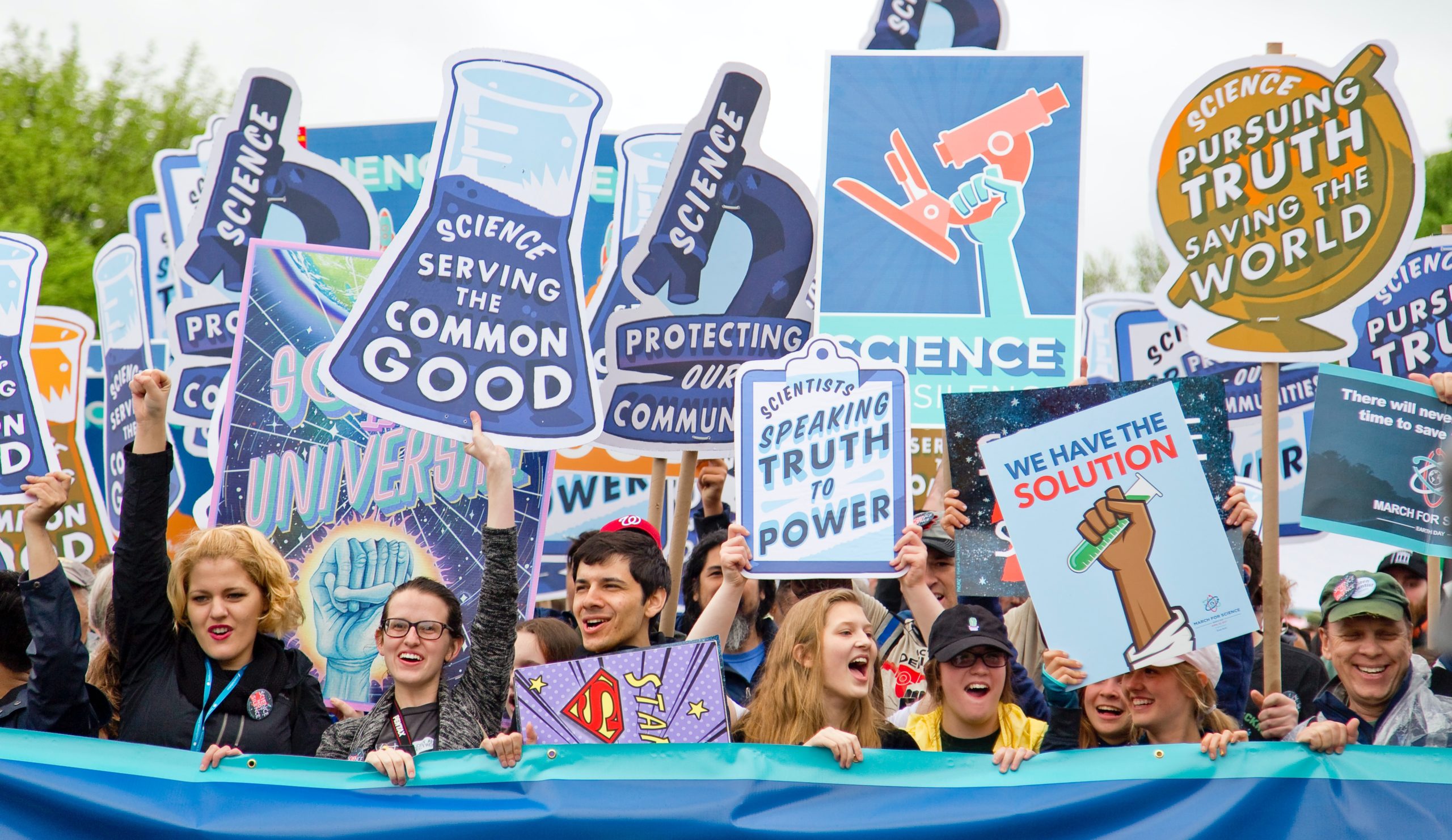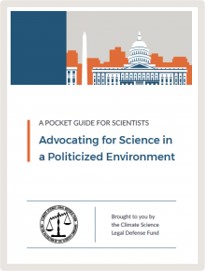11 August 2020
Advocating for climate science
Posted by Shane Hanlon
By Susan Rosenthal
A growing number of scientists in the United States are politically active and engaged, especially around issues affecting science. And researchers have the right to participate in advocacy, even if they work for federal agencies or state-funded institutions.

Photo from the March for Science. Credit: Susan Rosenthal
Despite this, we at the Climate Science Legal Defense Fund frequently speak with scientists deterred from advocacy after hearing of well-meaning colleagues who’ve been accused, for example, of violating anti-lobbying laws for writing an op-ed.
To help scientists understand their rights, we published Advocating for Science in a Politicized Environment, which explains the laws and provides tips for participating in advocacy and activism. It helps researchers be politically active and share their knowledge of critical scientific issues without running afoul of the law.
We’ve also published guides to scientific integrity policies at federal agencies to help federal employees and grantees understand their rights, including their rights to publicly communicate.
One way that scientists can make a difference is through the federal rulemaking process. Federal agencies are required to publish all proposed rules for public input. For at least 30 days after publication, anyone can submit written comments and, in some cases, attend a hearing; comments must be read and cataloged.

Cover of the Pocket Guide for Scientists.
This process enables researchers to influence agency decision-making by offering scientific expertise that an agency may not have considered. Doing so adds to the public conversation, leads to public mobilization, and can even provide important references for future litigation opportunities.
Scientists can also share their knowledge by serving as an expert witness. For example, as climate change impacts become more apparent, various parties are using litigation—sometimes in novel ways—to push lawmakers to address mitigation and adaptation strategies and hold fossil fuel producers liable for climate-related damage. As a result, there’s a demand for scientists with relevant training to help judges and juries understand the science underlying these arguments.
These developments present an exciting opportunity for scientists to participate in the legal process, but the prospect of doing so can be intimidating. So we wrote a Pocket Guide to What to Expect When You’re an Expert Witness. It helps scientists know what to expect when serving as an expert witness and encourages scientists to participate in the legal process by shedding light on the nuances of the legal system.
-Susan Rosenthal Scientists with questions about advocacy and activism, or other legal questions related to their work, can contact [email protected] for free, confidential advice.


 The Plainspoken Scientist is the science communication blog of AGU’s Sharing Science program. With this blog, we wish to showcase creative and effective science communication via multiple mediums and modes.
The Plainspoken Scientist is the science communication blog of AGU’s Sharing Science program. With this blog, we wish to showcase creative and effective science communication via multiple mediums and modes.